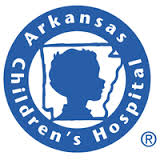Descriptive Analysis of Near Infrared Spectroscopy in Critically Ill and Injured Pediatric and Neonatal Patients
| Status: | Suspended |
|---|---|
| Conditions: | Hospital, Neurology |
| Therapuetic Areas: | Neurology, Other |
| Healthy: | No |
| Age Range: | Any - 21 |
| Updated: | 4/5/2019 |
| Start Date: | July 29, 2014 |
| End Date: | January 2023 |
This study involves looking at Cerebral oximetry measurements in pediatric and neonatal
patients who are experiencing a critical illness. Such as Altered mental status, seizures,
trauma, sepsis, etc.
patients who are experiencing a critical illness. Such as Altered mental status, seizures,
trauma, sepsis, etc.
At Arkansas Children's Hospital (ACH) Pediatric Emergency Department (PED), NIRS cerebral
tissue oxygenation rSO2 monitoring has become an adjunct noninvasive monitoring assessment
tool along with Pulse Oximetry and End-Tidal CO2 in the critically ill and injured neonatal
and pediatric patients' resuscitation endeavors or management. This has become a standard
monitoring tool for patients who require medical (possible strokes, diabetic ketoacidosis,
increased intracranial pressure, altered mental status, sepsis, drowning, shock, rapid
sequence intubations, seizures, altered mental status, strokes, possible shunt malfunctions)
or trauma (non-accidental trauma, Level One or Two Trauma with altered mental status,
traumatic brain injury, altered mental status with trauma history, vascular compromise)
resuscitation efforts.
Data will be collected as a retrospective and prospective chart review from the electronic
medical record of patients that were treated in the pediatric emergency department of
Arkansas Children's Hospital from 10-1-13 who require medical (possible strokes, diabetic
ketoacidosis, increased intracranial pressure, altered mental status, sepsis, drowning,
shock, rapid sequence intubations, seizures, altered mental status, strokes, possible shunt
malfunctions) or trauma (non-accidental trauma, Level One or Two Trauma with altered mental
status, traumatic brain injury, altered mental status with trauma history, vascular
compromise) resuscitation efforts. This study will be based on the patient information
recorded in these records, such as age, medications delivered, vital signs, interventions and
outcomes and compared to their PED NIRS cerebral tissue oxygenation rSO2 data. All study
subject materials will be assigned a unique identifying code or number. The cerebral NIRS
rSO2 data will be collected/graphed and de-identified.
tissue oxygenation rSO2 monitoring has become an adjunct noninvasive monitoring assessment
tool along with Pulse Oximetry and End-Tidal CO2 in the critically ill and injured neonatal
and pediatric patients' resuscitation endeavors or management. This has become a standard
monitoring tool for patients who require medical (possible strokes, diabetic ketoacidosis,
increased intracranial pressure, altered mental status, sepsis, drowning, shock, rapid
sequence intubations, seizures, altered mental status, strokes, possible shunt malfunctions)
or trauma (non-accidental trauma, Level One or Two Trauma with altered mental status,
traumatic brain injury, altered mental status with trauma history, vascular compromise)
resuscitation efforts.
Data will be collected as a retrospective and prospective chart review from the electronic
medical record of patients that were treated in the pediatric emergency department of
Arkansas Children's Hospital from 10-1-13 who require medical (possible strokes, diabetic
ketoacidosis, increased intracranial pressure, altered mental status, sepsis, drowning,
shock, rapid sequence intubations, seizures, altered mental status, strokes, possible shunt
malfunctions) or trauma (non-accidental trauma, Level One or Two Trauma with altered mental
status, traumatic brain injury, altered mental status with trauma history, vascular
compromise) resuscitation efforts. This study will be based on the patient information
recorded in these records, such as age, medications delivered, vital signs, interventions and
outcomes and compared to their PED NIRS cerebral tissue oxygenation rSO2 data. All study
subject materials will be assigned a unique identifying code or number. The cerebral NIRS
rSO2 data will be collected/graphed and de-identified.
Inclusion Criteria:
- Trauma: non-accidental trauma, Level One or Two Trauma with altered mental status,
traumatic brain injury, altered mental status with trauma history, vascular compromise
- Or medical: possible strokes, diabetic ketoacidosis, increased intracranial pressure,
altered mental status, sepsis, drowning, shock, rapid sequence intubations, seizures,
altered mental status, strokes, possible shunt malfunctions
Exclusion Criteria:
We found this trial at
1
site
1 Children's Way
Little Rock, Arkansas 72202
Little Rock, Arkansas 72202
(501) 364-1100

Principal Investigator: Thomas J Abramo, MD
Phone: 501-364-3481
Arkansas Children's Hospital Arkansas Children's Hospital (ACH) is the only pediatric medical center in Arkansas...
Click here to add this to my saved trials